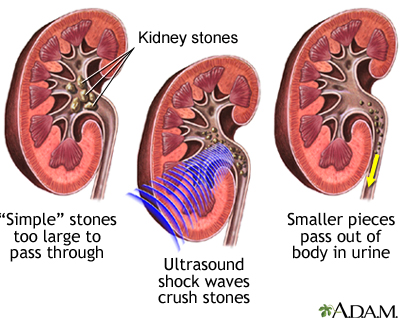Discovering Kidney Stones vs UTI: A Clear Review of Reasons, Signs And Symptoms, and Solutions
Discovering the Manifestations and Causes of Kidney Stones in Contrast to Urinary System System Infections: A Comprehensive Overview
The exploration of kidney rocks and urinary system tract infections (UTIs) reveals a complicated interplay of symptoms and underlying causes that necessitate mindful assessment. What are the essential differences in their symptoms, and just how might these notify therapy methods?
Summary of Kidney Stones
Kidney rocks, likewise called kidney calculi, type when certain materials in the pee crystallize and accumulation, leading to the growth of difficult deposits within the kidneys. These rocks can vary in dimension, ranging from a grain of sand to a golf ball, and can be made up of different materials, one of the most common being calcium oxalate, uric acid, struvite, and cystine. The development of kidney stones is affected by a number of factors, consisting of dietary habits, liquid intake, and hereditary predisposition.
Signs and symptoms of kidney stones might include serious discomfort in the back or side, blood in the urine, nausea, and constant urination, specifically as the stone relocates via the urinary system. Diagnosis commonly includes imaging studies such as ultrasound or CT scans, along with urinalysis to identify the stone's make-up.
Treatment choices differ based on the size and sort of rock, in addition to the seriousness of signs (Kidney Stones vs UTI). Little stones might pass naturally with boosted fluid intake, while larger rocks might require clinical interventions such as lithotripsy or surgical elimination. Recognizing the pathophysiology and risk elements related to kidney stones is necessary for reliable prevention and monitoring
Review of Urinary System System Infections
Urinary system system infections (UTIs) prevail bacterial infections that affect any type of component of the urinary system, consisting of the kidneys, ureters, bladder, and urethra. They mostly occur when bacteria, typically from the stomach system, get in the urinary system, leading to inflammation and infection. UTIs are categorized right into 2 primary kinds: complicated and uncomplicated. Straightforward UTIs typically occur in healthy individuals with normal urinary systems, while complicated UTIs might emerge in people with hidden conditions, such as structural irregularities or jeopardized immune systems.
The frequency of UTIs is significantly higher in women than males, primarily due to physiological distinctions, such as a shorter urethra. Threat aspects include sex, specific contraceptive approaches, urinary retention, and dehydration. The diagnosis of UTIs is typically validated via pee tests, which might reveal the visibility of germs, leukocyte, or red cell.

Signs And Symptoms of Kidney Stones
The discomfort related to kidney rocks can show up in numerous ways, typically leading people to look for medical interest. One of the most typical signs and symptoms is extreme pain, generally localized in the lower back or side, which may radiate to the abdominal area or groin. This discomfort, often referred to as sharp or cramping, can happen unexpectedly and might change in strength.
Furthermore, people might experience hematuria, or blood in the urine, which can vary from tiny quantities to visible discoloration. This sign may be accompanied by changes in urinary practices, such as enhanced frequency or urgency, as well as discomfort throughout peeing. Nausea or vomiting and throwing up are also prevalent, typically arising from the body's reaction to intense pain.
In some situations, individuals might experience high temperature and chills, specifically if a secondary infection creates because of the blockage brought on by the rocks. In general, the mix of severe pain, hematuria, transformed urinary patterns, and stomach symptoms can give significant insight right into the presence of kidney stones, necessitating prompt medical assessment and treatment. Understanding these signs is critical for timely diagnosis and efficient monitoring of the condition.
Symptoms of Urinary System Infections
Infections within the urinary system tract frequently provide a variety of distinctive symptoms that can substantially influence day-to-day life. The most common symptoms include a consistent urge to urinate, typically gone along with by a burning experience throughout peeing, called dysuria. People might additionally experience raised regularity of peeing, producing little amounts of urine each time.
Other noteworthy symptoms include foul-smelling or cloudy urine, which might suggest the existence of germs or pus. Sometimes, urine may appear pink or red as a result of the existence of blood, a condition called hematuria. Additionally, people may experience pelvic discomfort or stress, which can additionally worsen the feeling of urgency.
Systemic signs and symptoms might likewise manifest, such as high temperature, cools, and tiredness, especially if the infection has actually risen to the kidneys. It is necessary to identify these signs early, as without treatment urinary system infections can cause much more extreme issues. Kidney Stones vs UTI. Trigger medical interest is encouraged when these symptoms are observed, permitting proper diagnostic analysis and treatment to alleviate pain and avoid more health and wellness issues
Reasons For Each Condition
Often, kidney stones and urinary system system infections occur from distinctive yet often overlapping reasons that can impact people in a different way. Kidney stones commonly develop as a result of metabolic elements, nutritional choices, and genetic proneness. Increased levels of calcium, Recommended Reading oxalate, or uric see this here acid in the pee can lead to stone development. Dehydration, inadequate fluid intake, and high-sodium diet plans can aggravate these conditions, promoting formation within the urinary tract.

Recognizing these unique reasons is vital for prevention and therapy. Kidney Stones vs UTI. While way of life alterations may mitigate the threat of kidney stones, proper health and prompt therapy of urinary system infections are important for lowering their reoccurrence and linked problems
Verdict
In summary, kidney rocks and urinary tract infections existing distinctive symptoms and underlying causes. Kidney rocks are characterized by serious discomfort and metabolic elements, while urinary system tract infections mainly entail bacterial infections causing urinary system urgency and discomfort. Both problems can result in hematuria, their formation devices differ significantly. Recognizing these differences is crucial for reliable diagnosis and therapy, eventually enhancing individual end results for those influenced by either condition.
The exploration of address kidney rocks and urinary system tract infections (UTIs) exposes a complex interplay of signs and symptoms and underlying causes that necessitate careful assessment.Urinary system tract infections (UTIs) are typical microbial infections that affect any type of component of the urinary system, consisting of the kidneys, ureters, bladder, and urethra.Frequently, kidney stones and urinary system system infections occur from unique yet sometimes overlapping causes that can impact individuals in different ways.In summary, kidney rocks and urinary system infections present distinct signs and underlying reasons. Kidney rocks are characterized by severe pain and metabolic elements, while urinary system system infections primarily involve bacterial infections leading to urinary seriousness and pain.